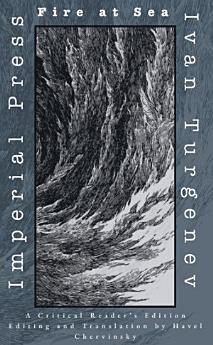Fire at Sea
O ovoj e-knjizi
This relatively short work serves as a personal memoir, offering a vivid and harrowing account of a near-catastrophic event. Despite its brevity, Fire at Sea exemplifies Turgenev's gift for combining personal experience with broader meditations on the unpredictability of life and the role of fate in human affairs. The fire aboard the steamship serves as a metaphor for the uncontrollable forces that shape human destiny, a theme that permeates much of Turgenev's later writing.
The novella is also significant in that it reflects Turgenev's increasing preoccupation with mortality in his later years. Written shortly before his death in 1883, Fire at Sea can be interpreted as a reflection on the fragility of life and the thin line between survival and destruction. Turgenev's personal reflection on fire becomes a meditation on the uncontrollable forces that govern existence, whether those forces are natural, political, or personal. The story's journalistic tone and detailed description of the event give it an immediacy that contrasts with the more introspective and philosophical works of Turgenev's earlier career.
This critical reader's edition presents a modern translation of the original manuscript, crafted to help the armchair philosopher engage deeply with Turgenev's works through clean, contemporary language and simplified sentence structures that clarify his complex ideas. Supplementary material enriches the text with autobiographical, historical, and linguistic context, including an afterword on Turgenev’s history, impact, and intellectual legacy highlighting the personal relationships that shaped his philosophy (focusing on Dostoevsky, Tolstoy and Gogol), an index of the philosophical concepts he employs (emphasizing Realism and Nihilism) a comprehensive chronological list of his published writings, a brief biography, and a detailed timeline of his life.











